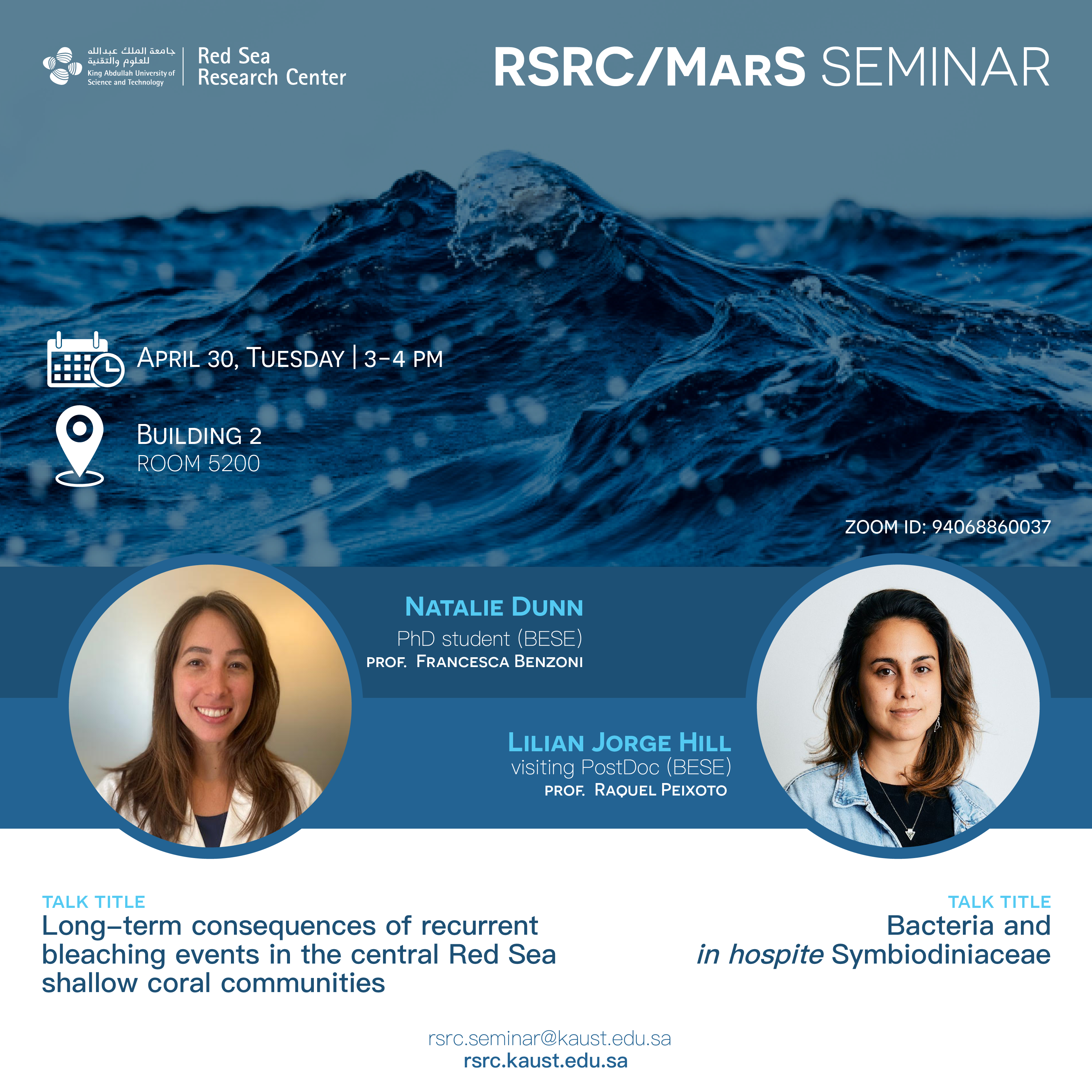CURRENT STUDENTS
STUDENT RESOURCES
COURSE LIST & SYLLABI
FREQUENTLY USED FORMS
DOWNLOAD PROGRAM GUIDES
CURRENT STUDENTS FAQs
For M.S. students, your advisor when you are admitted to KAUST is the Program Chair. For Ph.D. students, your advisor is your PI (supervisor) whose lab you have been accepted in to.
Yes, you can change your advisor. M.S. students are advised to do so if/when they begin their thesis or directed research. Ph.D. students do have the ability to change advisors, but the overall impact to the Ph.D. project, as well as the time left to finish the Ph.D., could be significant. This will have to be taken into account before approval.
M.S. students need 36 credits (combination of courses and research is specific to your program).
Ph.D. students need 6 credits of 300-level coursework and will earn dissertation research credit each semester until they defend (no minimum credits established, although there is a minimum residency requirement of 2.5 years).
M.S. students get all university holidays (Eid Al-Fitr, Eid Al-Adha, Spring break).
Ph.D. students get university holidays and three weeks of annual/vacation leave per calendar year to be taken in agreement with your PI.
Yes. Drop and Add deadlines are on the academic calendar.
Your GPC can help you request these from the Registrar’s Office, or you can contact them directly at RegistrarHelpDesk@KAUST.EDU.SA
Latest Events
RSRC Dual Seminar: Natalie Dunn & Dr. Liliian Hill

Speaker 1: Natalie Dunn
Title: Long-term consequences of recurrent bleaching events in central Red Sea shallow coral communities
Abstract:
In the Red Sea, major coral bleaching events coincided with temperature anomalies in 1998, 2010, 2015, 2020, and 2023, during which branching corals and shallow inshore reefs were most susceptible. While many studies globally have quantified bleaching prevalence, few studies evaluated long-term impacts to community composition and reef structural complexity, and these effects are largely unknown in the Red Sea. This study investigates the long-term consequences of the 2020 and 2023 bleaching events on shallow water coral communities in the central Red Sea, using Structure-from-Motion photogrammetry. This methodology uses overlapping images to generate a three-dimensional reconstruction of the reef, from which high-resolution structural complexity and community composition may be extracted. Between KAUST and Yanbu, seven transects were surveyed in October 2020 during the bleaching event, and re-surveyed two years later in October 2022. One site was re-surveyed at the onset of bleaching in September 2023 and toward the end in October 2023. Temperature was recorded at each site. Using ArcGIS, coral colonies in each transect were identified to the lowest possible taxonomic level, and growth form and condition were recorded. Preliminary data support common patterns linking bleaching susceptibility with growth form, however, there were some exceptions. This presentation will discuss preliminary results of resistance and resilience across some of the most thermally-tolerant coral communities in the context of climate change.
Bio:
Natalie Dunn is a PhD student in the Habitat and Benthic Biodiversity Lab with Prof. Francesca Benzoni. She completed her M.S. degree at Hawaii Pacific University in 2015 studying macroinvertebrate infauna in estuarine systems impacted by the invasive mangrove species Rhizophora mangle. After completing her M.S. degree, she worked with the Hawaii Division of Aquatic Resources mainly investigating the impact of invasive algae on shallow coral reefs. Her current research focuses on seasonal and extreme change in shallow coral communities through long-term monitoring using Structure-from-Motion photogrammetry and Pulse-Amplitude Modulated (PAM) fluorometry. Understanding inherent variability in these communities is essential to detect and evaluate change and ecosystem resilience in a changing climate.
Speaker 2: Dr. Liliian Hill
Title: Bacteria and in hospite Symbiodiniaceae
Abstract:
Symbiotic interactions between Symbiodiniaceae and bacteria are still poorly explored, especially those in hospite. In this presentation, I'll tell the story of how we adapted a technique that allows for the enrichment of intact and metabolically active in hospite Symbiodiniaceae cells (ihSC) and their associated bacteria from the tissue of the model coral Pocillopora damicornis, using a discontinuous gradient of solution of isotonic Percoll. We believe that this classic technique applied to this new field will contribute to elucidate ihSC-bacteria interactions within different coral species.